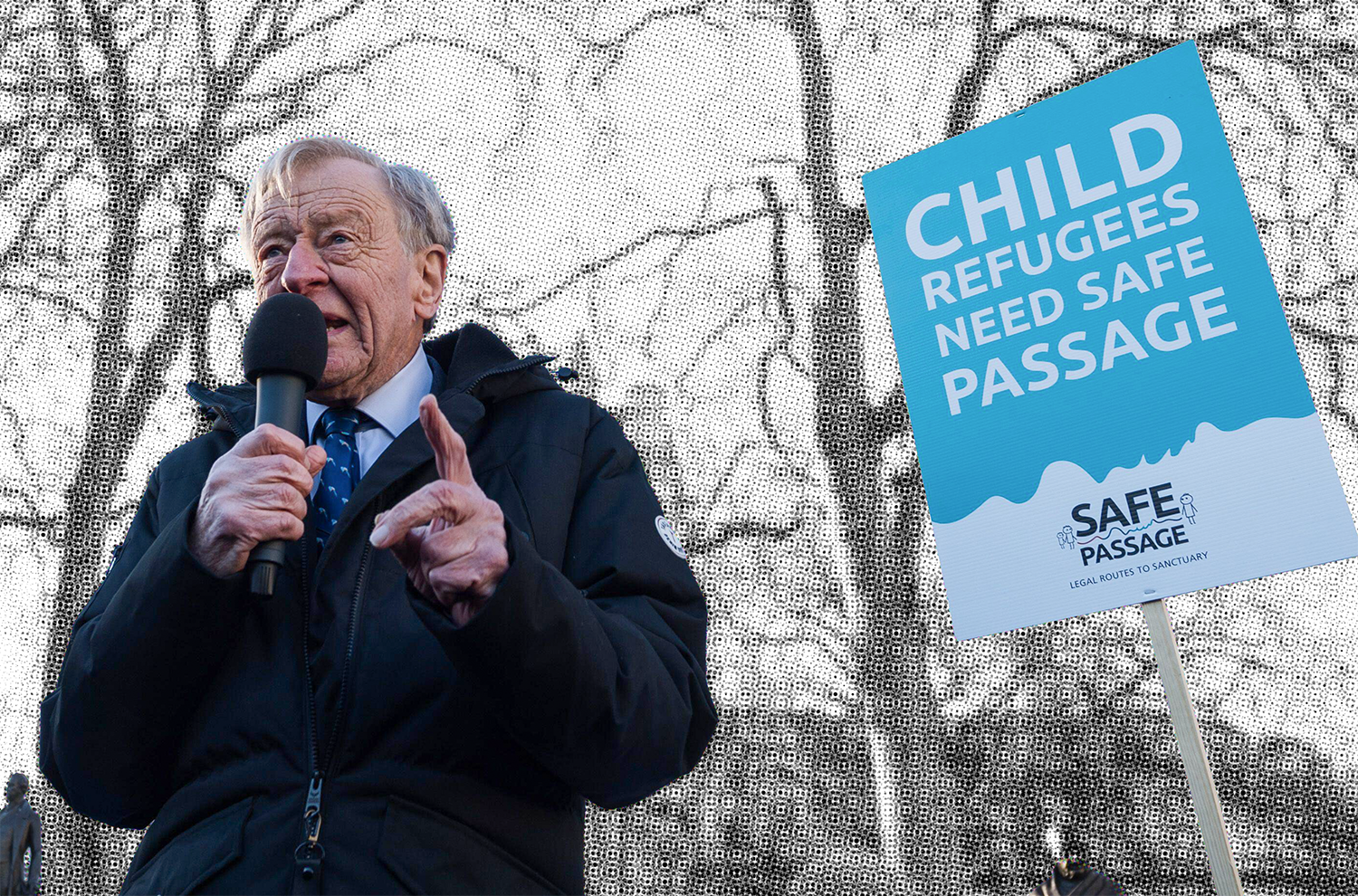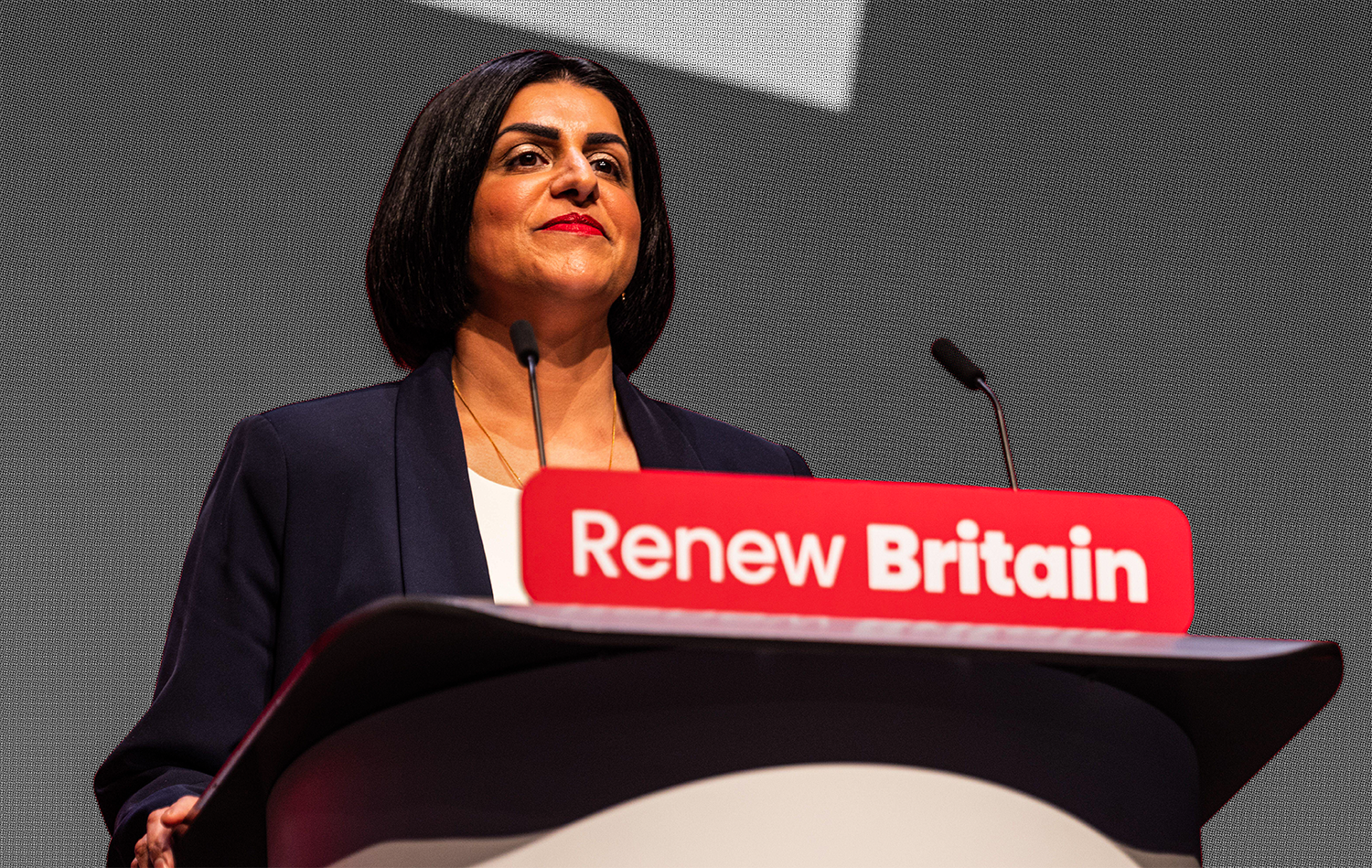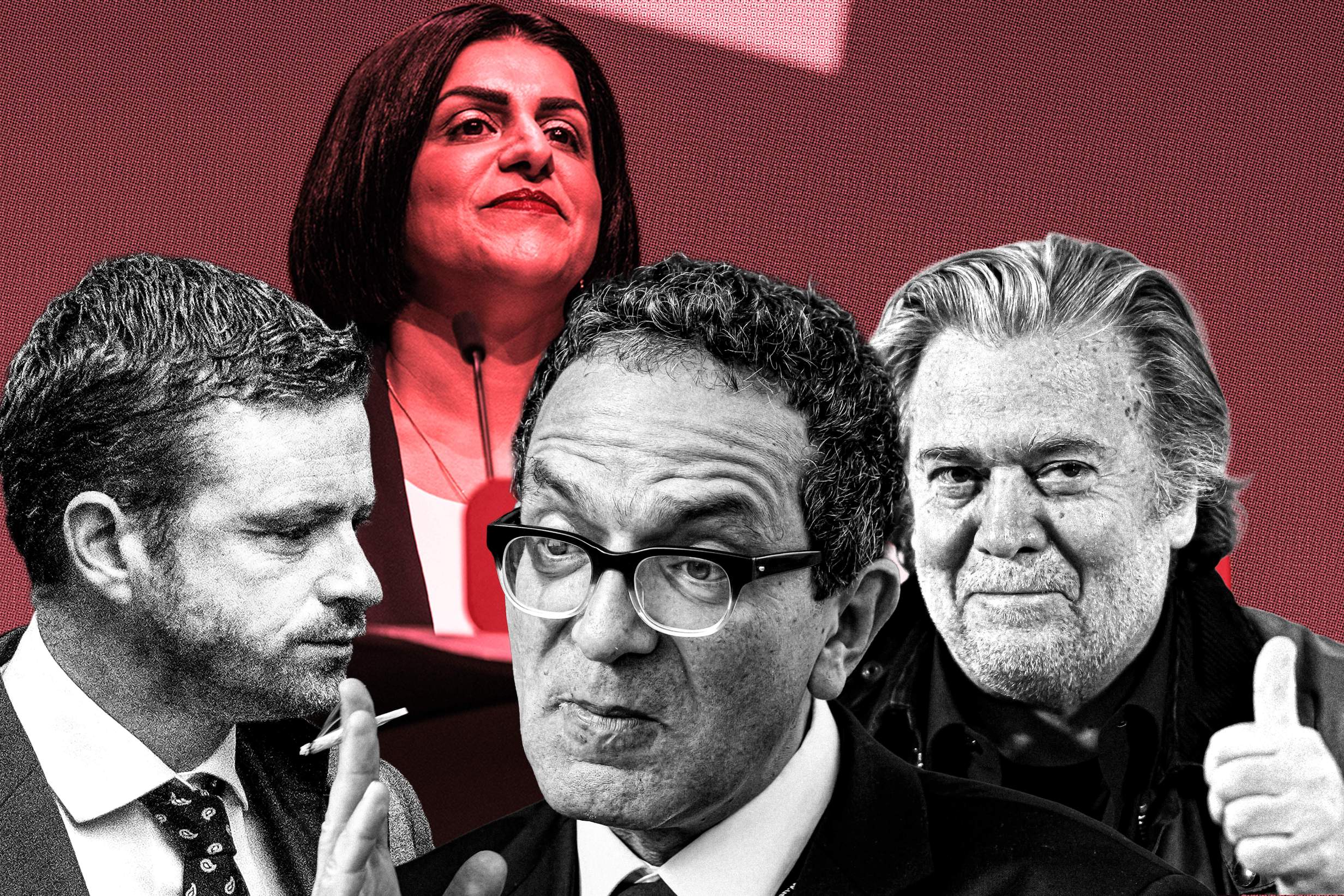
Read our Monthly Magazine
And support our mission to provide fearless stories about and outside the media system
When veteran Labour peer Alf Dubs first heard the Government’s hardline proposals to transform the asylum system, he was shocked.
Lord Dubs, who arrived in Britain as a child refugee from Nazi-occupied Czechoslovakia in 1939 on the Kindertransport and has since spent his life campaigning on behalf of displaced children, told Byline Times that he was “taken aback” to hear some of the proposals announced last week.
“There are some very harsh and unnecessary things, which are bitterly disappointing coming from a Labour Government,” he said.
“They are very different to the sorts of things the party supported when we were in opposition. We cannot defeat Reform by trying to outdo them.”
Dubs has good reason to feel shocked. In 2020, he signed a joint letter with Keir Starmer urging the then Conservative Government to restore its commitment to family reunion for child refugees.
In the letter the then Shadow Brexit Secretary said there was a “moral argument” to protect “some of the most vulnerable people in the world.” Five years on and Starmer’s own Government is now ripping up some of those same protections.
Dubs says the Government’s new plans, which include making refugee status temporary and making it harder for refugee families to reunite, represent a “historic low for the Labour party” that he has been a member of for the past five decades.
Of particular concern for Dubs is the suggestion that families could be forced to return to their home country once ministers deem it “safe” to return. That would involve imprisoning children, including those born in this country, something the Home Secretary has declined to rule out.
Lord Dubs met last week with Home Office minister Alex Norris to raise his concerns. However, he hasn’t yet met the Home Secretary, Shabana Mahmood.
“She [Mahmood] is doing things that I think are letting this country down,” he said. “I don’t think [former Labour Home Secretary] David Blunkett did that. These proposals undermine basic human rights principles. We’re better as a country than that.”
Last week Mahmood justified her plans for the asylum system by telling MPs that she and her family had been subjected to racist abuse over many years, including being called a “fucking paki”.
Given her experiences, Dubs finds it surprising that she has taken such a hardline stance on refugees. “I’m hoping that her feelings will hold sway over the harsher line she’s putting forward. She knows what it’s like” he says.
Lord Dubs, who has spent his life helping lone child refugees to settle in Britain, was particularly disheartened by some of the language the Home Secretary used.
In her statement on the plans, Mahmood suggested that asylum seekers were “exploiting the fact that they have children” to “thwart attempts” to remove them. The Home Secretary added that the system currently “incentivises” families to put their children on unseaworthy dinghies to cross the Channel. Responding to the comments, Lord Dubs told BBC that the Government was “using children as a weapon”.
His alarm was only heightened by the response from Nigel Farage’s Reform UK to Mahmood’s proposals. Reform UK MP Danny Kruger welcomed the rhetoric used by the Home Secretary, suggesting that Labour sounded like Reform, and invited Mahmood to defect to their party. Reform’s official Twitter account later posted a meme of Mahmood in her bedroom with their flags behind her. This was, Lord Dubs says, “cheap politics” with the refugee issue being exploited for “cynical electoral ends.” He believes Nigel Farage is riding the crest of the wave, but it won’t last. “Unfortunately, they are having some success in the polls because he is an effective communicator.”
Is Keir Starmer an effective communicator, I ask him? “No, and that’s the problem” he replies.
An Island of Strangers?
It was, Lord Dubs says, a mistake for the Prime Minister to say that the UK risked becoming an “island of strangers”. To his credit, he pulled back on that language, but Dubs still found it “quite breathtaking” from a Labour leader. Much of this language is different to the man he knows and has known for many years. It is, he feels, “out of character”, down to the pressure from Reform. Immigration is, he believes, not an argument that the Labour party can win.
“It doesn’t automatically follow that to be tough [on this issue] is the way of dealing with Nigel Farage. We’ve got to show we’re different.”
The European Convention on Human Rights, which was a key postwar piece of legislation protecting the rights of refugees, is coming under increasing fire at the moment.
Dubbed ‘the new Brexit’ by its critics, Nigel Farage and Kemi Badenoch have both argued that Britain should withdraw from the Convention entirely, while Labour suggests that changes are needed to prevent asylum seekers from invoking Article 8, right to family life, to frustrate their removal.
Lord Dubs argues that there are very few examples to support the claim that people are using private and family life to remain in Britain. According to the latest figures, the rate of removals based on Article 8 was only 2.5%. He is therefore “sceptical” about how effective modifications to the ECHR would be and would like to see evidence to suggest that it could make a difference. “I think there will be quite a big row about it when the detail is put forward,” he says.
He says part of the blame for the current debate lies with Brexit, Nigel Farage’s previous project, which he says has “been a disaster for this country” which has made international cooperation significantly more difficult.
There are now very few mechanisms to return people safely and Britain’s influence on the world stage has been significantly weakened. “We have a deal with France, which is a small sign that agreement is possible,” he says, “but they’re fed up with us.”
Lord Dubs has visited Calais, where many asylum seekers start their crossing to the UK, many times. His last visit was eighteen months ago, shortly after he turned ninety. There, he spoke to young people “sleeping under trees” who were waiting for free passage by taking smugglers up on their offer to pilot the boats. That leads many young people into difficulty; it is a criminal offence to drive the dinghies. Still, he finds Calais a vital place. He says it is both “energising and shocking” to hear the stories of what people have fled and there’s a power in their resilience and will to survive.
It is the absence of safe and legal routes that means people sit in Calais, waiting for a boat to take them across the Channel. To stop the smuggling networks – or, to use the government’s past parlance, to “smash the gangs” – an alternative option needs to be established.
He points to his own experience on the Kindertransport, which he says was a “powerful” thing to do. Over the course of a year from 1938-39, more than 10,000 child refugees were brought to our shores. Britain was the only nation to take child refugees in such great numbers – not even the United States made such a move – and that is something to be proud of. “We set a decent standard,” he says. “It was a finite policy, but it showed that Britain was a country that could do something very significant.”
ENJOYING THIS ARTICLE? HELP US TO PRODUCE MORE
Receive the monthly Byline Times newspaper and help to support fearless, independent journalism that breaks stories, shapes the agenda and holds power to account.
We’re not funded by a billionaire oligarch or an offshore hedge-fund. We rely on our readers to fund our journalism. If you like what we do, please subscribe.
So is a similar rescue effort like that unimaginable now? Dubs believes not.
When he was chief executive of the Refugee Council, hes watched as Britain took several thousand Bosnians from Serb concentration camps. Then the UK introduced the Syrian Vulnerable Persons Resettlement Scheme. We’ve taken people from Hong Kong and Ukraine and Afghanistan. And, of course, there was the Dubs Amendment, which brought unaccompanied refugee children to Britain who didn’t have family here. Through his efforts, 480 children arrived safely on our shores.
What Lord Dubs would like to see now is a policy that allows child asylum seekers abroad to apply to join their family here if they have status. That is, Dubs says, “a gentle and humane policy, which the general public would think was sensible”, but it has been defeated in the House of Lords. Why, he doesn’t know. He says he got a “waffly answer” from party officials when he queried it.
Putting forward the amendment hasn’t made him popular with Labour whips, he says, because he was doing something out of the ordinary: moving an amendment against a Labour Government. A meeting with Alex Norris followed, with suggestions that the Government would look to introduce safe and legal routes, including family reunion, next year. Timeframes are not clear, however.
“We are waiting,” he says. “I’m hopeful that some of the pressure building up against the harder line aspects of the Home Secretary’s policy will show in softer policy.”
An optimist, he certainly is. In spite of it all, Lord Dubs is determined to maintain a positive outlook about the future. “I’m hoping better times are ahead,” he says.
“I’m hoping we’ve reached the extremes with these proposals, in what was said. I’m hoping the Government will climb back a bit and see that there is a better, more humane way forward.”
A Home Office spokesperson was contacted for comment but did not provide a response.


